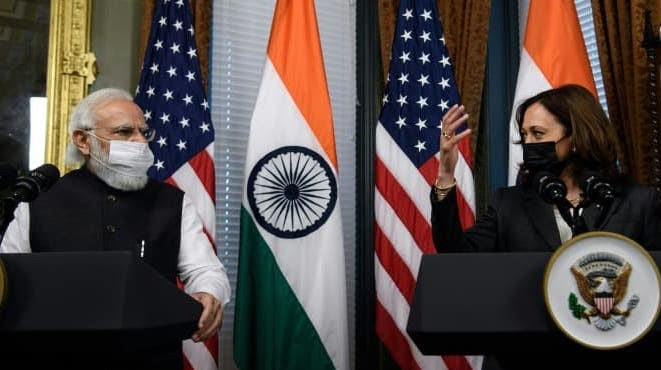By, John Elliott/ Asia Sentinel/September 27, 2021
Two key changes in India’s relationship with the US have emerged in the past 10 days. During a high profile visit to Washington, Prime Minister Narendra Modi has faced thinly veiled criticism of the way that his government is reducing the scope of India’s democratic freedoms, while the new AUKUS security alliance between the US, UK, and Australia, announced on September 17, points to a reassessment by the Biden administration of India’s potential military usefulness in the Indo-Pacific.
The criticisms, which came mainly from vice president Kamala Harris, and were less forcibly voiced by President Joe Biden, were rebutted by Modi when he addressed the UN general assembly yesterday (Sept 26).
For similar articles, join our Whatsapp group for the latest updates. – click here
But the reassessment of India’s security role will probably be welcomed because the country is traditionally reluctant to become tied to security alliances, especially when it is trying to find balance in its complex relationship with an increasingly aggressive China.
This has led to questions about India’s effectiveness in the Quadrilateral Security Dialogue, known as the Quad with the US, Japan, and Australia, which has been developing as a counter-force against China’s expansionism over the past four years.
Now, with AUKUS’s high-technology defense agenda against China, initially involving the development of nuclear submarines for Australia, the Quad can focus on broader, less strategic military issues, as it did when the leaders of the four countries met in Washington on September 24. That fits with India’s agenda.
Modi, whose 71st birthday was widely celebrated by his Bharatiya Janata Party across India just over a week ago, has been accustomed to being enthusiastically greeted in Washington since he came to power in 2014.
To begin with, he met a surprisingly receptive Barack Obama, and then there was his rumbustious soul mate Donald Trump. Modi and Trump would hug each other (below in 2017), and even staged what amounted to joint political rallies in each other’s countries in 2019 (Houston with Indian Americans) and 2020 (Ahmedabad) with the Indian prime minister seemingly endorsing Trump for re-election.
There is now a basic antipathy in Washington for Modi’s brand of nationalism, which is focused on building a Hindu homeland where Muslims do not have equal ranking, and where freedoms of speech and expression are harshly curbed. Former President Barack Obama said during an October 2017 visit that Muslims should feel integrated, something that “should be cherished and nurtured,” but that was to a private audience at the end of his trip after leaving Modi.
Click on the link to read the full article in Asia Sentinel:
https://www.asiasentinel.com/p/india-relationship-changes-biden-usa
Subscribe to our Whatsapp channel for the latest updates from around the world






















































